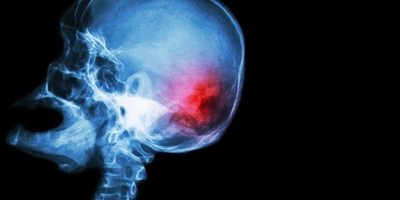
George Institute launches project to improve mental health services in Andhra Pradesh through the existing primary health care system
VIJAYAWADA, NOV 25. In order to bridge the treatment gap in the area of mental health, the George Institute for Global Health India has launched an intervention project for improvement of mental health services in India through the existing primary health care system in two states - Andhra Pradesh and Haryana.
The multi-faceted primary health care intervention known as SMART mental health involves a community based anti-stigma campaign and a mobile device based decision support system to improve management of adults at high risk of common mental health disorders.
“The aim is to evaluate the clinical effectiveness and cost-effectiveness of a multifaceted primary healthcare worker intervention in 44 Primary Health Centres (PHCs) in Haryana and Andhra Pradesh,” says Dr Pallab Maulik, Research Head, George Institute for Global Health, India.
“We did a large pilot involving community health workers in a 5 PHCs (covering 42 villages and ~50000 population) in the West Godavari district of Andhra Pradesh and found that a mobile based decision support system works well to effectively address the treatment gap. We want to try this out on a larger population and hence this endeavour,” Dr Maulik added. We would also like to extend the study among adolescents in urban slums and will conduct a program in Vijayawada and Delhi involving adolescents aged 10-19 years to increase their understanding of stress and depression; identify risk factors and coping strategies adopted by adolescents and increase the capacity of primary care health workers to manage common stressful problems faced by adolescents.
The recent National Mental Health Survey in India estimated the lifetime prevalence of any mental disorder among adults is about 15 per cent with nearly 150 million Indians in need of treatment. However, gaps in access to adequate health services for people with common mental disorders (depression, anxiety and increased risk of suicide) are large – estimated to be 75-85% in resource-limited settings such as India, with only around 4% of people with major depressive disorders receiving adequate care. Almost 7.5% adolescents suffer from some mental illness and these rates are double in urban areas, but few of them seek mental health care due to lack of understanding, stigma, few trained staff, and general lack of understanding in the community about what common ways to deal with stress among adolescents.
The Institute conducted a policy symposium on mental health in Vijayawada today to explore how the package and intervention can contribute to the District Mental Health Programme and strengthen mental health care delivery model in the state, both among rural adult, and urban slum residing adolescent populations. A diverse group of attendees from the Government, research organisations and civil society attended the symposium.
Speakers at the symposium hoped that the results from the George Institute intervention could inform some of the targets as outlined in the National Mental Health Programme and WHO’s Mental Health Action Plan.
“We hope that the inputs from the symposium will inform the ongoing efforts of the institute to promote better mental health services, discuss, and debate the policy level aspects of taking knowledge generated through this project to larger communities using scalable solutions,” said Dr Maulik .





